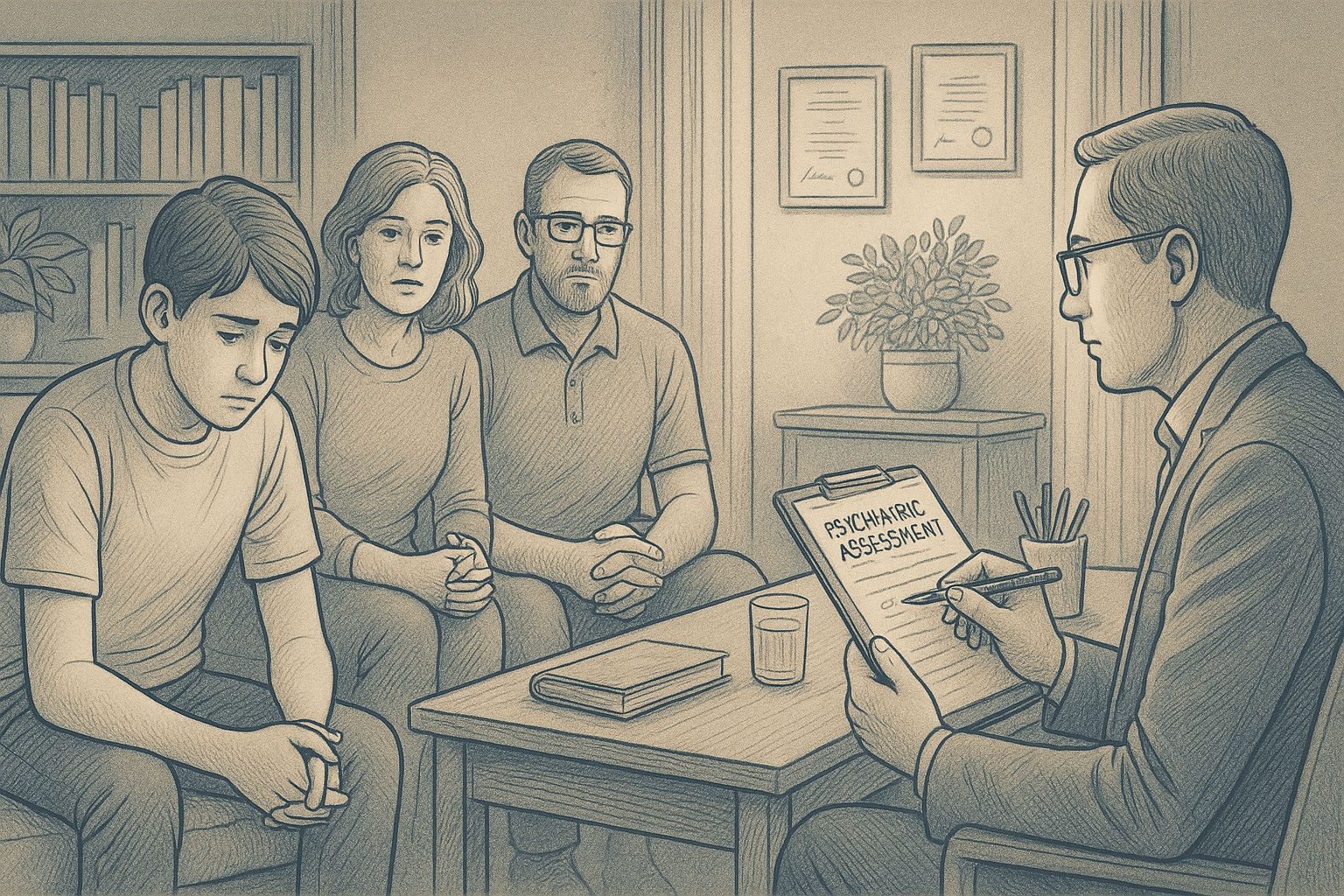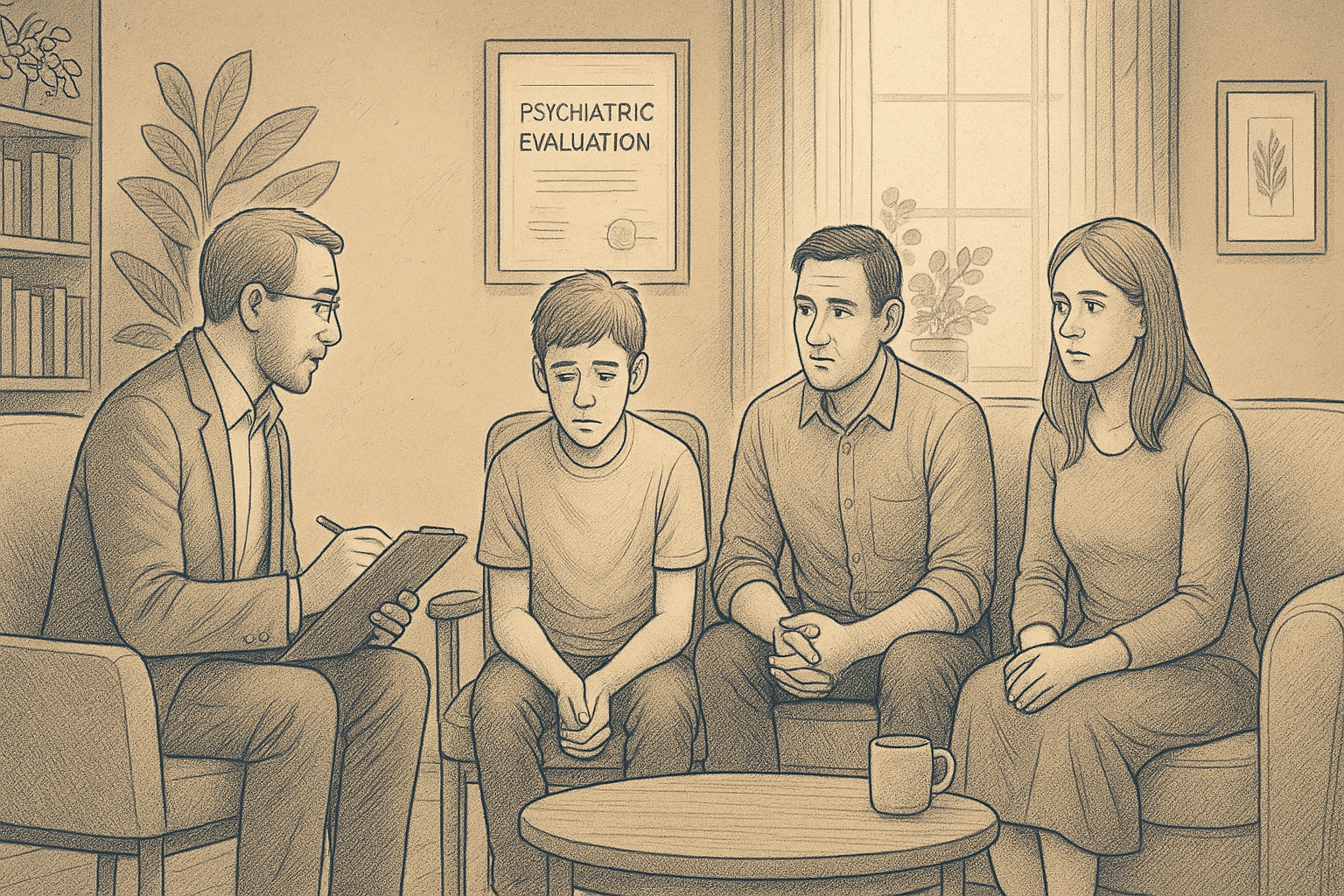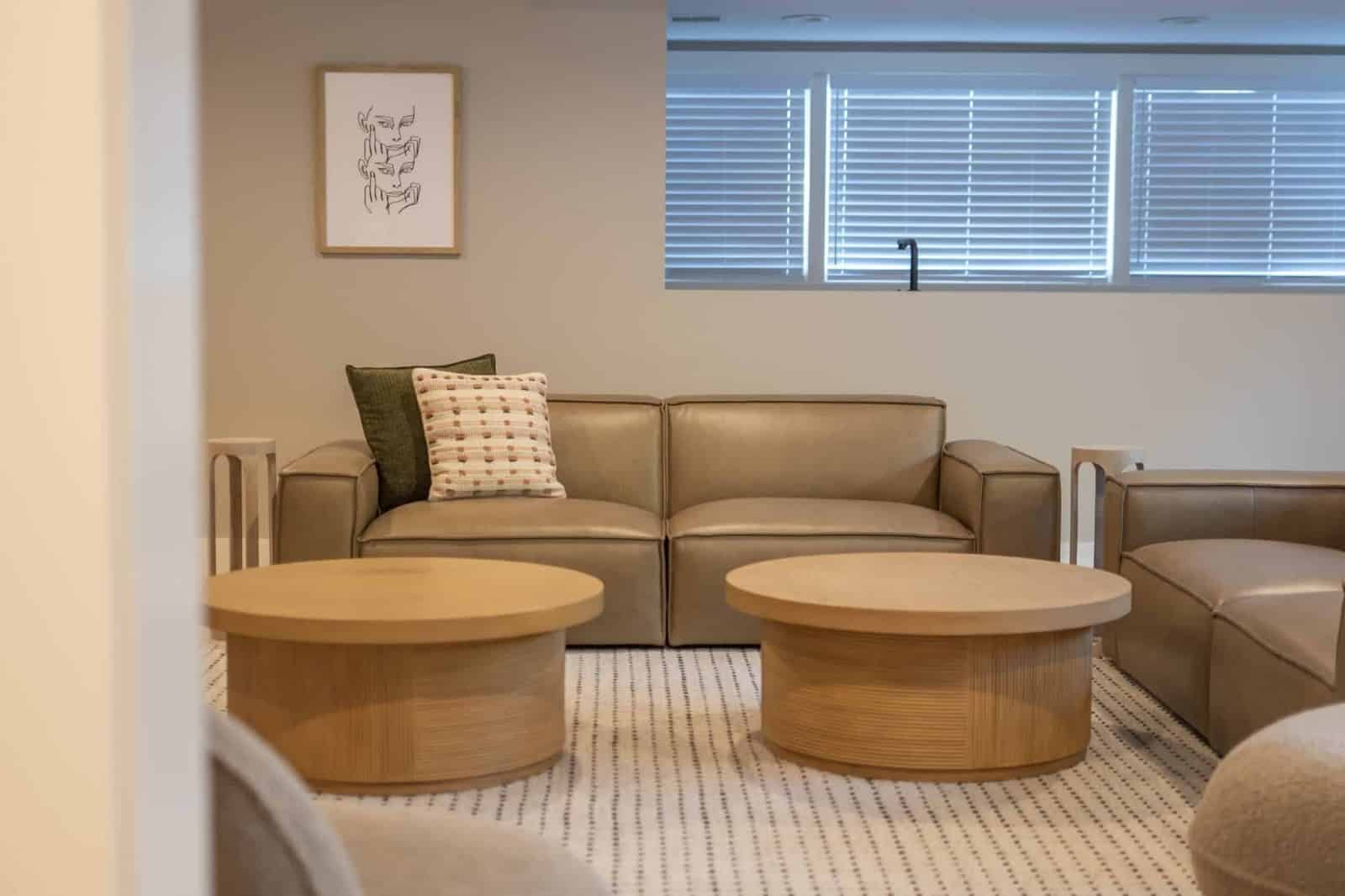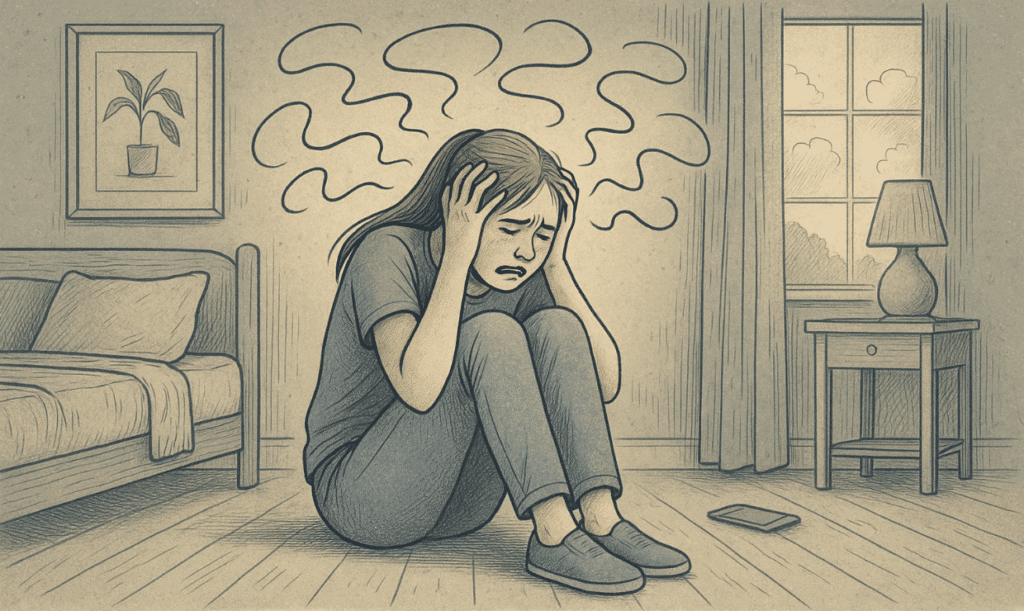Key Takeaways
- A 5585 hold in California allows for the 72-hour involuntary psychiatric assessment of minors who present a danger to themselves, others, or are gravely disabled due to mental health issues.
- Parents retain certain rights during a 5585 hold, including prompt notification, visitation privileges, and the ability to challenge the hold through legal means.
- The 72-hour period begins when the minor is admitted to the facility, not when they are first detained, and excludes weekends and holidays.
- After the initial 72-hour period, a 5585 hold may be extended to a 5250 hold (14 days) if clinicians determine the minor requires additional treatment and stabilization.
- Mission Prep Healthcare provides comprehensive adolescent mental health services including crisis intervention, family-focused treatment, and specialized programs designed to support teens and families through psychiatric emergencies and ongoing recovery.
What Is a 5585 Hold?
A 5585 hold refers to a section of California’s Welfare and Institutions Code that authorizes the 72-hour involuntary detention and psychiatric evaluation of minors experiencing mental health crises. This legal provision serves as the juvenile equivalent to the adult 5150 hold but contains important distinctions specifically designed to address the unique needs and legal status of children under 18 years of age.
The 5585 hold serves as a critical intervention tool when immediate action is necessary to prevent harm. It provides a structured framework for mental health professionals to evaluate and stabilize minors experiencing acute psychiatric episodes while ensuring their safety and the safety of others. During this period, qualified professionals conduct comprehensive assessments to determine appropriate treatment plans and next steps.
Purpose of 5585 Holds
The primary purpose of a 5585 hold is to provide immediate intervention during mental health emergencies involving minors. These holds create a safe environment where trained professionals can assess the severity of the minor’s condition, stabilize acute symptoms, and develop an appropriate treatment plan.
The 72-hour timeframe allows for comprehensive evaluation without unnecessarily prolonged detention, balancing the need for thorough assessment with respect for the minor’s liberty interests.
When It Can Be Used
A 5585 hold can only be initiated when specific criteria are met and only by authorized individuals. These designated professionals include peace officers, county-designated mental health professionals, professional staff at mental health facilities designated by the county, or members of a mobile crisis team. Each of these individuals must personally observe behaviors that indicate the minor meets one or more of the three criteria: danger to self, danger to others, or grave disability due to a mental disorder.
Importantly, a 5585 hold differs from adult holds in that it can only be implemented when voluntary treatment is not feasible because a parent or guardian is unavailable or unwilling to provide consent. If parents consent to voluntary psychiatric hospitalization, the involuntary hold process becomes unnecessary.
Mission Prep Healthcare specializes in mental health treatment for teens aged 12-17, offering residential and outpatient programs for anxiety, depression, trauma, and mood disorders. Our therapies include CBT, DBT, EMDR, and TMS, tailored to each adolescent’s needs.
With a structured, supportive environment, we integrate academic support and family involvement to promote lasting recovery. Our goal is to help teens build resilience and regain confidence in their future.
72-Hour Duration Explained
Start and End Times
The 72-hour clock for a 5585 hold begins at the time of admission to the designated mental health facility, not when the minor is first taken into custody. This distinction is important, as transportation and admission processes can take several hours.
California law specifies that weekends and holidays are excluded from the 72-hour calculation. This means that if a minor is placed on a hold that would normally end during a weekend or holiday, the hold may be extended until the next business day.
This provision ensures that proper evaluation can occur with full staffing and resources available before a release decision is made.
What Happens During Assessment

During the 72-hour period, the minor undergoes comprehensive psychiatric evaluation by licensed mental health professionals.
The assessment typically includes interviews with the minor and, when possible, with parents or guardians to gather history and context. Medical examinations, psychological testing, and observation of behavior in the controlled environment provide additional information for the assessment.
The evaluation process focuses on several key areas: determining the nature and severity of the mental health condition, assessing risk factors for harm to self or others, evaluating the minor’s functional abilities and support systems, and identifying appropriate treatment options.
Treatment during the 72-hour period primarily focuses on crisis stabilization rather than long-term therapy. The goal is to stabilize the immediate crisis while gathering sufficient information to determine the appropriate next steps.
Extension Possibilities
Before the 72-hour period expires, the treating psychiatrist must determine whether the minor continues to meet criteria for involuntary detention.
If the assessment indicates ongoing risk and need for treatment, the hold may be extended through additional legal mechanisms. The most common extension is a 5250 hold, which allows for up to 14 additional days of intensive treatment.
Parents should be informed that these extensions are not automatic and require documentation that the minor continues to meet specific criteria despite receiving 72 hours of assessment and treatment.
Parental Rights During Holds

When your child is placed on a 5585 hold, you retain significant parental rights throughout the process, though some temporary limitations may apply.
Notification Requirements
Facilities are legally required to make every reasonable effort to notify parents or legal guardians as soon as possible after a minor is detained on a 5585 hold. This notification should include information about where the minor is being held, the reason for the hold, and basic information about the assessment process.
If you haven’t been contacted and believe your child may have been placed on a hold, you have the right to call hospitals and request this information.
Visitation Rules
Parents generally have the right to visit their child during a 5585 hold, though facilities may impose reasonable restrictions on visitation hours and duration.
These limitations are intended to accommodate treatment schedules and maintain a therapeutic environment. Most facilities have established visiting hours for family members, which staff should communicate during the initial notification.
Medical Decision Authority
Parents retain significant authority regarding medical decisions during a 5585 hold, though this authority is temporarily limited in certain areas. While the hold allows for assessment and crisis stabilization without parental consent, ongoing treatment decisions, particularly regarding medication, generally require parental involvement.
The exception is emergency medication necessary to prevent immediate serious harm, which may be administered without prior consent.
Right to Challenge
Parents have the legal right to challenge a 5585 hold if they believe it was improperly implemented or is no longer necessary. This challenge can be made through a writ of habeas corpus, which is a legal petition asserting that the minor is being unlawfully detained.
To pursue this option, parents typically need to consult with an attorney experienced in mental health law who can file the appropriate legal documents with the court.
Next Steps After Release
The days and weeks following your child’s release from a 5585 hold are critical to their ongoing stability and recovery. The transition from 24-hour supervision and support to home requires careful planning and follow-through.
Before discharge, the facility should provide a written aftercare plan that includes recommendations for follow-up treatment, medication management if applicable, and crisis resources in case symptoms worsen.
This plan serves as a roadmap for continuing care and should be developed with input from both you and your child when possible. Take time to review this plan thoroughly and ask questions about any aspects that seem unclear or concerning.
Finding Hope and Healing with Mission Prep Healthcare
At Mission Prep Healthcare, we recognize that families facing 5585 situations need more than crisis stabilization; they need comprehensive, family-centered care that addresses underlying mental health conditions and builds sustainable recovery foundations.

Mission Prep’s home-like environment and family-focused philosophy help teens develop essential coping skills while maintaining meaningful connections with their support systems.
Our collaborative approach integrates evidence-based treatments with innovative therapeutic modalities, creating individualized care plans that honor each family’s unique needs. We understand the trauma and confusion surrounding involuntary psychiatric holds, which is why our clinical team provides ongoing education, support, and guidance throughout the treatment process.
When psychiatric crises disrupt family life, our comprehensive programs offer hope, healing, and the tools necessary for long-term success and sustainable recovery.
Frequently Asked Questions
Can parents prevent a 5585 hold from being placed?
Parents cannot directly refuse a 5585 hold once authorized professionals determine legal criteria are met. However, parents can potentially avoid involuntary holds by consenting to voluntary psychiatric hospitalization when their child requires inpatient care. If you believe a hold was inappropriately applied, you have the right to challenge it through legal means, typically requiring assistance from a mental health attorney.
Does a 5585 hold create a permanent record for my child?
No, a 5585 hold is a confidential medical intervention, not a criminal proceeding. It becomes part of your child’s protected medical records under HIPAA and state privacy laws, not accessible to schools, employers, or other parties without specific authorization. The hold does not appear on educational transcripts or create public records.
What happens if my child needs treatment beyond 72 hours?
If continued treatment is necessary, the preferred option is transitioning to voluntary status with parental consent. If voluntary treatment isn’t feasible and your child still meets criteria, a 5250 certification may extend the hold for up to 14 additional days, requiring a certification review hearing with legal protections.
Can I make medical decisions for my child during the hold?
Parents retain significant medical decision-making authority during a 5585 hold. While emergency medications may be administered without consent to prevent immediate harm, routine psychiatric medications generally require parental consent. You have the right to be informed about proposed treatments and participate in medical decision-making.
How does Mission Prep support families during psychiatric crises?
Mission Prep Healthcare offers specialized adolescent mental health programs with 24/7 crisis support, family education about involuntary treatment processes, and comprehensive care including residential, outpatient, and telehealth options. Our family-focused approach ensures parents receive guidance and support throughout complex crisis situations and treatment planning.





















